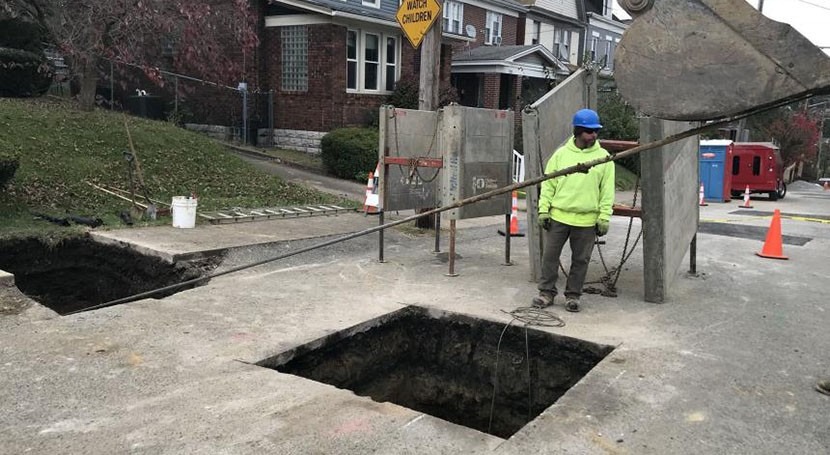The Pittsburgh Water and Sewer Authority (PWSA) is dedicated to removing all lead service lines from our drinking water system. With the approval of several contracts by our Board of Directors, we are poised to invest an additional $26.1 million to continue our aggressive removal of lead service lines.
In 2022, we will continue this essential work with several targeted programs to prioritize daycare centers and other locations showing elevated lead samples throughout Pittsburgh. PWSA focuses its neighborhood-based lead line replacement program by using community-based data to prioritize the most vulnerable neighborhoods. Prioritization is based on blood lead levels in children and the concentration of at-risk populations, like children under six years old and women of child-bearing age. It also includes income levels of the neighborhood and the presence of lead service lines. We also use this prioritization model as part of the criteria in selecting our areas for water main replacements.
“Our community-based approach to lead service line replacements prioritizes our most vulnerable neighborhoods,” said Will Pickering, CEO of the Pittsburgh Water and Sewer Authority. “By further targeting priority locations like daycare centers, we can effectively reduce the risk of childhood lead exposure.”
A significant portion of planned water main and service line replacement work for the year is being funded with assistance from state and federal programs. This includes $17 million from the American Rescue Plan, which was allocated by the City of Pittsburgh in 2021, as well as over $7.7 million in state PENNVEST funding for service line and water main replacement efforts. These funding packages help to alleviate the financial burden on ratepayers and over time will save ratepayers approximately $27.5 million.
“We’re sincerely grateful for the support we have received from our local, state, and federal partners,” said Will Pickering, PWSA’s CEO. The combination of low-interest loans and grants expedites our critical work and reduces the financial burden on our limited pool of ratepayers.”



